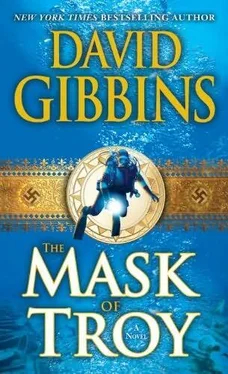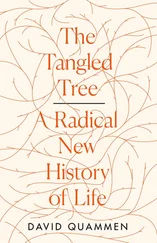David Gibbins - The Mask of Troy
Здесь есть возможность читать онлайн «David Gibbins - The Mask of Troy» весь текст электронной книги совершенно бесплатно (целиком полную версию без сокращений). В некоторых случаях можно слушать аудио, скачать через торрент в формате fb2 и присутствует краткое содержание. Жанр: Триллер, на английском языке. Описание произведения, (предисловие) а так же отзывы посетителей доступны на портале библиотеки ЛибКат.
- Название:The Mask of Troy
- Автор:
- Жанр:
- Год:неизвестен
- ISBN:нет данных
- Рейтинг книги:3 / 5. Голосов: 1
-
Избранное:Добавить в избранное
- Отзывы:
-
Ваша оценка:
- 60
- 1
- 2
- 3
- 4
- 5
The Mask of Troy: краткое содержание, описание и аннотация
Предлагаем к чтению аннотацию, описание, краткое содержание или предисловие (зависит от того, что написал сам автор книги «The Mask of Troy»). Если вы не нашли необходимую информацию о книге — напишите в комментариях, мы постараемся отыскать её.
The Mask of Troy — читать онлайн бесплатно полную книгу (весь текст) целиком
Ниже представлен текст книги, разбитый по страницам. Система сохранения места последней прочитанной страницы, позволяет с удобством читать онлайн бесплатно книгу «The Mask of Troy», без необходимости каждый раз заново искать на чём Вы остановились. Поставьте закладку, и сможете в любой момент перейти на страницу, на которой закончили чтение.
Интервал:
Закладка:
2
P rofessor James Dillen shifted on the foam mat and stretched out his right arm, relieving the persistent ache that had been developing in his elbow all morning. He was thrilled to be here, but he was beginning to realize that archaeology came at a price. All those years he had spent in libraries and his study in Cambridge had given him the patience he now needed, but not the particular set of physical attributes required to kneel all day in a trench under the withering Mediterranean sun, working away with a trowel and a brush. He pushed himself upright, feeling a jab of pins and needles in his leg, and peered over the ancient stone revetment in front of him, relishing the afternoon breeze that was now sweeping across from the Dardanelles. The keening of the wind through the trees that flanked the ancient mound sounded like the wailing of mourners, and seemed to eclipse any residue of the clash of arms and the bellowing of heroes that had once resonated from the plain below.
He slipped awkwardly on his elbow, and jerked his head back to avoid scraping it against the solidified black mass on one side of the trench. He came to rest with his nose against the mass. He smelled an acrid odour, and moved his head, sniffing. It was there, definitely. He could hardly believe it. He could smell the fires of Troy. He pushed back and stared at the mass, a conglomeration of ash and carbonized material that rose up the ancient wall to where it had been eroded away. When Maurice Hiebermeyer had inspected his work the afternoon before, he had said the mass was not the result of a general conflagration, the destruction debris seen elsewhere on the site. Instead it was an astonishing discovery, a deliberate fire, the remains of a massive signal beacon on top of the citadel. An astonishing discovery. Dillen had been thrilled. This morning he had arrived before dawn, and had watched the red glow from the sun rise up the mound as if it were burning again, and imagined flames roaring high, swathed in smoke. He had opened his mind to words, as he always did, imagining how the ancients would have described it. The Greek word ’??’??? kept coming into his head: the word for torch, for flame. It was also a woman’s name. ’??’???. Helen. An extraordinary thought coursed through his mind. Had he discovered the truth behind the legend of Helen of Troy? Had Helen, Helen of the flaming hair, Helen of myth, been not a woman, the woman of ravishing beauty whose abduction caused the war, but instead a great burning beacon above Troy, a fire that drew the Greek army forward, that signalled the destruction of Troy and the annihilation of the Bronze Age world?
He picked up a potsherd that had fallen from the scorched mound, a thick black sherd, charred, and sniffed it. He could smell it there, too. He could smell Helen of Troy. He shook his head in amazement. He pushed the sherd into his shorts pocket. Something to show Jack. He sat up, squinted against the sun and stared west, over the flat plain of the river Scamander towards Besik Bay, the harbour of ancient Troy. Somewhere beyond lay the island of Tenedos, and Seaquest II, with Jack on board. Two nights before, in Jack’s cabin, they had drunk whisky together, sharing their greatest dreams about what they might find here. Once, years ago, they had been teacher and pupil, separated by a generation that had seen archaeology advance by leaps and bounds, with dazzling results. When Dillen had been a student, underwater exploration had been in its infancy, and most who wished to study the ancient world had come to it through languages, through ancient Greek and Latin. Language was Dillen’s passion, and he had excelled at it, specializing in the early development of Greek. But through Jack he had come to have a vicarious second life, and he had revelled in his former student’s discoveries. He had yearned to join Jack in the field, and Jack had known exactly where and when, a project that would fuse their passions. To excavate at Troy. It had seemed a pipe dream, and then Dillen had made the extraordinary discovery in an ancient text that had brought them here. That night in Jack’s cabin they had been like two treasure-hunters together, copies of Homer’s Iliad opened out in front of them, poring over well-thumbed passages. For Jack, it was a fabulous treasure he believed had been lost at sea. For Dillen, it was another extraordinary artefact mentioned by Homer, something that had once existed in this huge mound of rubble and earth beneath him. Something that might still be here. That night he had felt as if they were a secret society of true believers, like Heinrich Schliemann and his closest supporters, fuelled by a belief that might now be given another dazzling burst of reality, as powerful as the one that Schliemann had released when he came here and first revealed the splendours of Troy to a stunned world.
Dillen looked at his watch. It was nearly three p.m., the official end of the digging day, when Hiebermeyer normally came round for his inspection. Hiebermeyer had been one of Dillen’s star students, a close friend of Jack’s, and seemed to take a certain pleasure in inspecting his old professor’s carefully laid-out tools and notebooks, scrutinizing them like a barracks-room sergeant. Dillen smiled to himself, remembering his first encounter with Hiebermeyer, a generously proportioned youth with sagging shorts, little round glasses, a tousle of unwashed red hair, and an unquenchable enthusiasm for all things Egyptian. Maurice had changed little in the years since, apart from losing his hair and acquiring a wife, the least likely event anyone could have imagined. Jack said that Aysha’s insistence that Maurice broaden his horizons was the only reason Hiebermeyer could be dragged away from his mummies and pyramids to work at Troy. But Dillen knew that Maurice secretly loved being back in the field with his friend Jack, and that his grumbles about shipwrecks and treasure-hunting were just part of their banter, something that had begun when they first met at boarding school in England and had mapped out their futures together.
Dillen lay down on his front again, propped up on his elbows, his face close to the ancient masonry. His trench had begun as something of a sideline, a room in an aristocratic house on top of the citadel that had escaped Schliemann’s great gouge through the site a hundred and thirty years before, and Hiebermeyer’s attention was focused on the extraordinary tunnel he had revealed just inside the south-west corner of the citadel. This morning Hiebermeyer had made some kind of breakthrough, and it would probably be a while before the inspection. Dillen decided to carry on for another half-hour. He stared at the exposed wall. It was separated by a narrow gap from the massive rampart of the late Bronze Age citadel, high up on the mound, some thirty metres above the surrounding plain. His excavation had revealed wall plaster and the remains of a painted fresco, an extremely rare find at Troy. He had finished brushing off the fresco that morning, and it was now shrouded by a plastic sheet.
All that remained to be dug out was a small area of impacted debris against the lower few centimetres of the wall. It had turned out to be an extraordinarily interesting deposit, and Dillen had devoted painstaking hours to it. He had just been photographing his prize finds: three bronze arrowheads, stuck into the ground, angled in the orientation of the arrows as they had come hurtling in from over the outer rampart wall. They were two types, one leaf-shaped with a slight mid-rib and a long tang, the other triangular with a pronounced rib and long barbs. He stared at the arrowheads, then back at the carbonized remains of the beacon fire. Words flowed back into his mind again, a fragment of the Trojan epic cycle: Earth, being weighted down by the multitude of people, there being no piety among humankind, asked Zeus to be relieved of the burden, and he destroyed the race of heroes and fanned the flames of the Trojan War. Dillen thought hard. This was what archaeology revealed. This was why it was worthwhile. The poem was wrong. These arrowheads were not thunderbolts of Zeus, nor the trident of Poseidon. They were weapons wrought by mortals. It was not gods who had destroyed Troy; it was men.
Читать дальшеИнтервал:
Закладка:
Похожие книги на «The Mask of Troy»
Представляем Вашему вниманию похожие книги на «The Mask of Troy» списком для выбора. Мы отобрали схожую по названию и смыслу литературу в надежде предоставить читателям больше вариантов отыскать новые, интересные, ещё непрочитанные произведения.
Обсуждение, отзывы о книге «The Mask of Troy» и просто собственные мнения читателей. Оставьте ваши комментарии, напишите, что Вы думаете о произведении, его смысле или главных героях. Укажите что конкретно понравилось, а что нет, и почему Вы так считаете.












